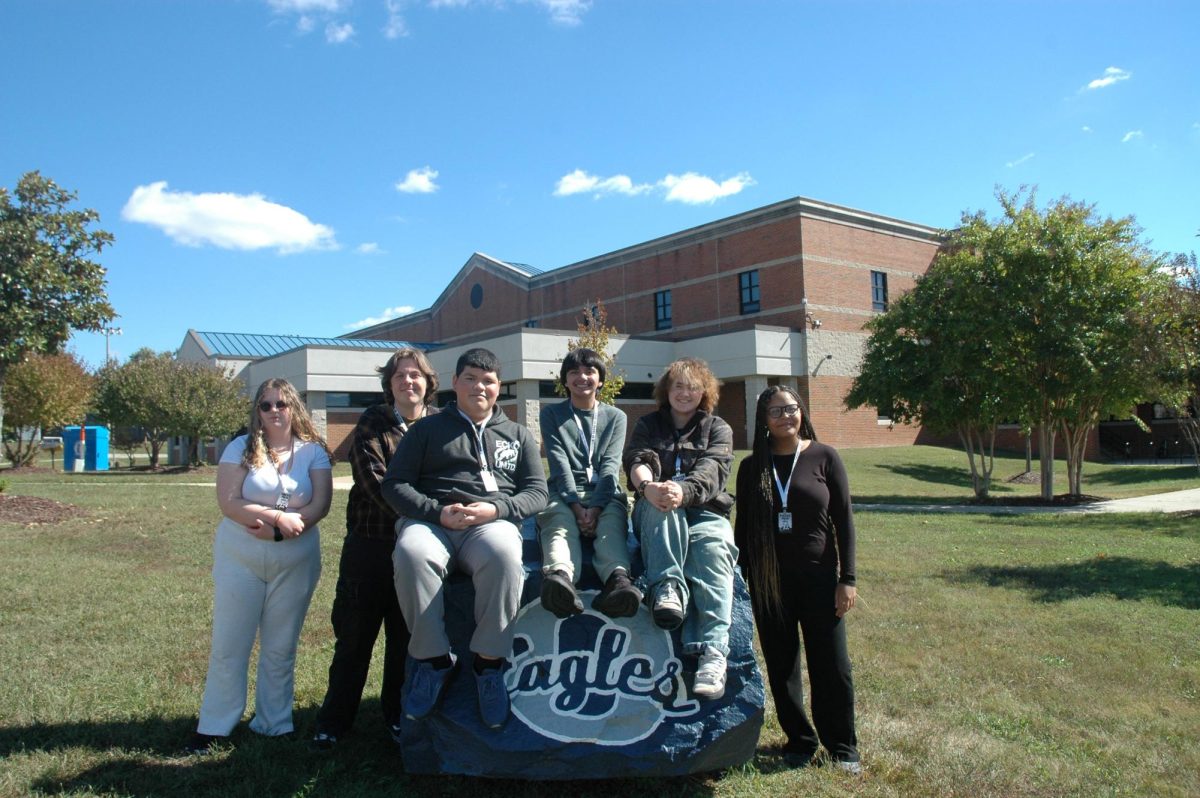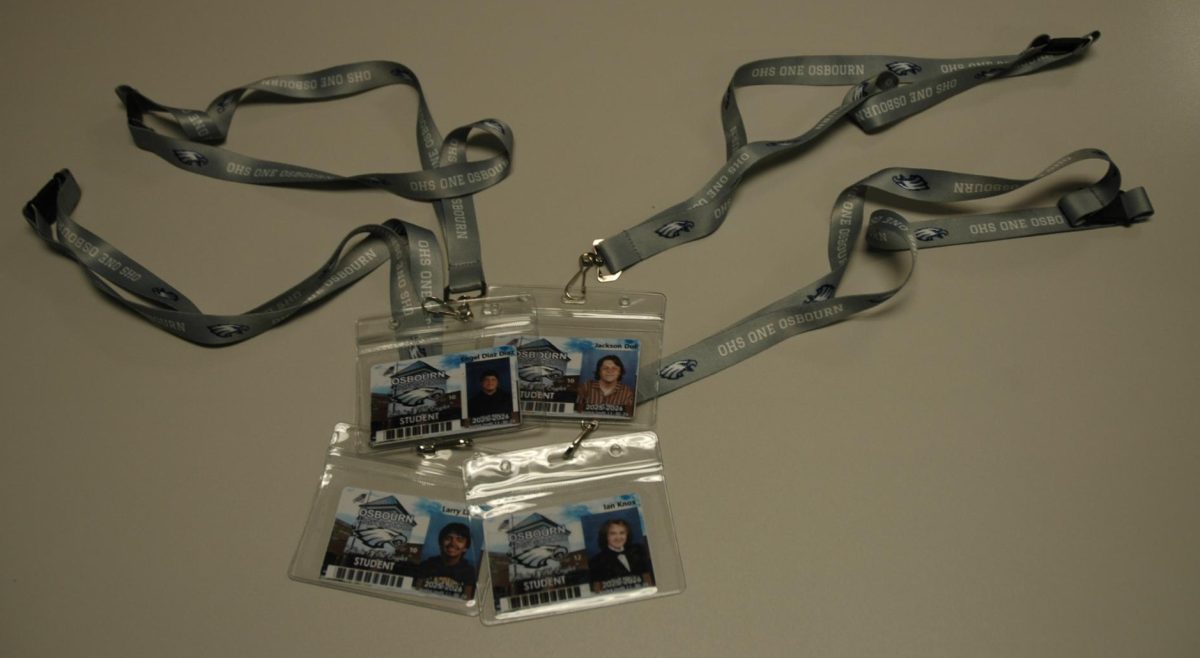Many students are worried about taking AP classes. They don’t know what they’re ready for, especially freshmen who are new to everything. AP means Advanced Placement classes, and they are college-level courses.
The word ‘college’ tends to scare people away from the courses. Many people who were interviewed say the ‘easiest’ AP class is Human Geography and the ‘hardest’ is AP Lang and History. However, don’t be scared about what other people say, because it’s you doing the work.
“AP Human Geography is definitely much harder than a lot of people make it seem. A lot of people say it’s one of the easiest APs, but it’s actually very rigorous. Definitely don’t take it if you just heard it’s ‘easy’ cause it’s much different,” Marycruz S. Orellana, a sophomore, said.
“AP World History is so much reading. You also get map and reading tests every other week, and it’s a lot, but I wouldn’t say it’s difficult,” sophomore Krista Levene said.
Overall, students who have taken AP World History have said it’s a ton of reading. So definitely make sure to have that in mind if you’re taking it!
AP Pre-Calculus isn’t a very talked-about AP course. Many students take it to be better introduced, others take it for college credit. When asked, students in AP Pre-Calc said it was pretty easy compared to the other APs they’ve taken, especially in the math field. Only noting that it does seem a bit difficult at the beginning but gets much easier, as with all APs.
“AP Pre Calculus is rigorous, but I don’t regret taking it; it’s really worth it,” senior Isabella Ferrel explained.
“AP Pre-Calculus is not for those who can’t graph. A lot of it is graphing, and it personally wasn’t too hard for me, but I know some people struggled with it a lot. AP History isn’t too bad, but it’s going to be terrible for people who don’t like reading. Do NOT take it if you don’t feel like reading a ton every day. Or else, you’re going to be miserable,” junior Rachael Ngo said.
“Most of the AP teachers are nice, so I wouldn’t worry. You have to read and write a lot in AP History. The graphing in AP Pre-Calculus was especially challenging for me, but don’t let it scare you. You get better at it, and it’s overall a good choice to take,” junior Gabrielle Law said.
Although that may have helped you a little, no one knows more about the classes than the teachers themselves! When asked why they recommend students to take their class, this is what they had to say.
“I enjoy teaching AP Statistics because there’s a lot of real-world applications in it. Anyone would use statistics in real life, even after high school. Anything you need to read, know how much there is, any graph or stats in a magazine, includes statistics. They’re everywhere, so it’s important to get the hang of them and know the math behind how they work. The nice thing about AP Statistics is the fact that it’s different from other AP math classes, I think, because it involves more of what the student thinks, instead of focusing more on the math that they’re used to,” said Ms. Fulton, one of Osbourn’s AP Statistics teachers.
“I recommend students to take AP Seminar or AP Research because they are crucial for college. Students complete a portfolio, learn how to properly research, learn proper oral presentation skills, and advance in their writing and reading skills significantly. These are all valuable skills to know and perfect before college. The difference between the two is the fact that students work on secondary research, and research focuses more on the students’ interests. In research, said student can write and research about anything they are interested or passionate about, which I think is less boring than when they have to research about something the teacher picks,” said Ms. Morgan, an AP Research and AP Seminar teacher.
“It’s good for students to take AP Environmental Science because it’s in their daily real-life everywhere and every day in their community, and it’s also a lot of fun. There are a lot of field trips, labs, and outside work, which I think also helps students get fresh air,” said Mr. Finchman, an AP Environmental Science teacher.
“Don’t be intimidated to take AP Pre-Calculus. If you have already passed Algebra 2, then you are ready to take it. It’s not much harder; the only difficult thing is getting used to it at the beginning of the year. I also wouldn’t say everyone uses it after high school, but if you’re interested in a career path in the field, it will help with landing a job significantly,” said Ms. Brady, an AP Pre-Calculus teacher.
Lastly, Osbourn offers an interesting AP Psychology class. Many students don’t get to practice in the field at their age and find it an interesting option, but they’re afraid of the AP in front of it.
“Psychology is something you don’t get a lot of chances to study at your age. I think it’s a great class to take if you’re curious about the mental reasons why people do what they do. It’s also going to help if you’re interested in a career path in the medical field because all medical college students need to take psychology freshman year. Taking it now helps save time and money; it’s also a great opportunity if you’re just curious but don’t want to spend money taking a college class about it. I will say, the most challenging thing for students is just memorizing all the terms, but it’s not a bad choice at all,” said Mr. Zenewicz, our AP Psychology teacher.
Overall, if you have some credits to make up or even a field you’re interested in for the future, AP classes are the way to go! Note that all AP classes are going to be rigorous, so don’t take one expecting it to be your usual class, but don’t let that scare you away from it either. We are truly lucky to have so many AP options. They open many doors to many students interested in their own different dreams and careers.
I hope this helped people wishing to take one of these AP classes next year! If so, what are you planning to take? Let us know in the comments!















Bri • May 22, 2025 at 2:27 pm
I plan on taking AP World and AP Psychology in sophomore year, and AP Seminar in my junior. I think AP Seminar is way too hard for sophomores, but it definitely is a good class to take in junior year.
Josh Guzman • May 15, 2025 at 11:11 am
I plan to take AP human geography and AP seminar. My teachers recommended it for me. I chose specifically human geography because history isn’t my best subject and I am definitely better at geographical information. As for AP seminar, my teacher recommended it to me, so I can be prepared for college since there is a lot of research. Hopefully I can pass these classes because being in a college class sounds a bit terrifying, but I know it will help me in the future.
Shane McCusker • May 2, 2025 at 2:39 pm
I am currently in AP world history and definitely agree that there is a lot of reading. The whole year is basically learning about global events that have happened up until now so there is a lot to cover. The AP test that I am currently studying for is also very intimidating. I would not recommend taking the course ill-prepared. I do plan on taking AP Pre-calc next year though so I will take this advice!
Pamela Qurioz • Apr 8, 2025 at 2:45 pm
I’m planning on taking AP classes in the near future but for right now I’m going to maybe take one honors class and the rest regular classes
keyli • Apr 8, 2025 at 2:37 pm
I’m taking AP English next year and also prob and stats. I just hope that I will do good in both classes.